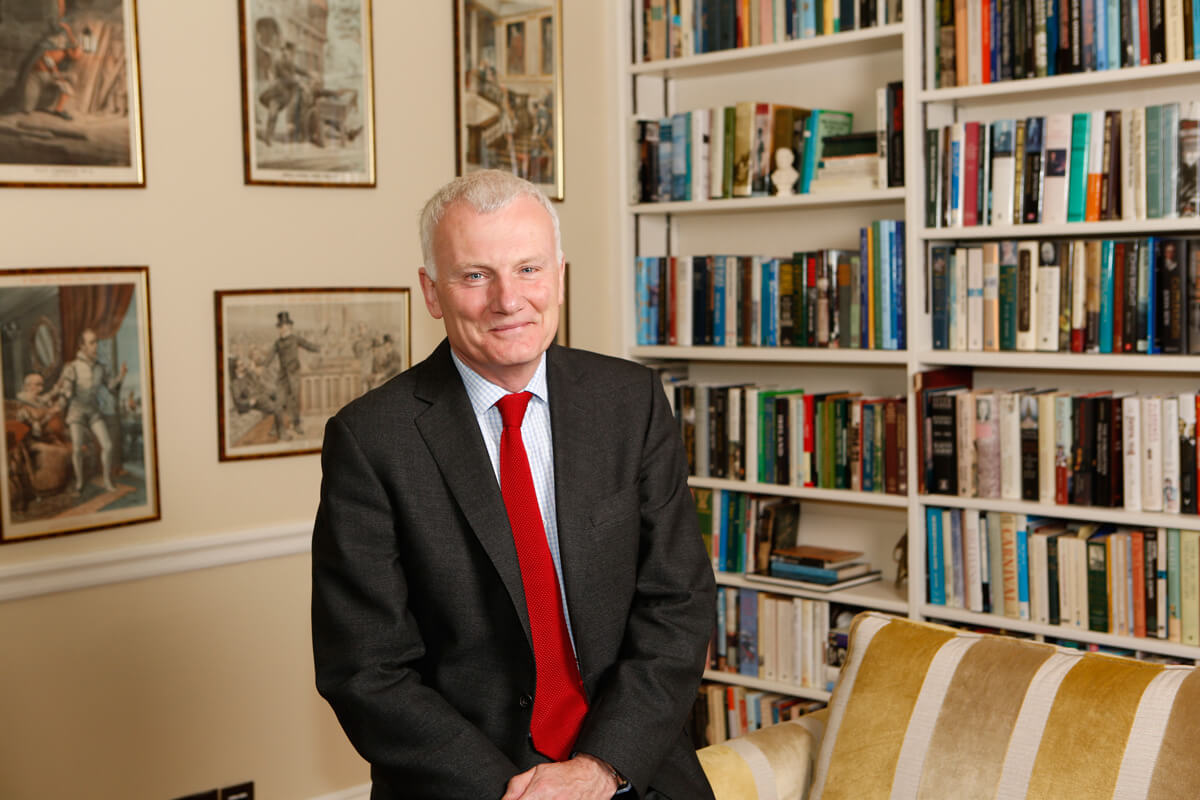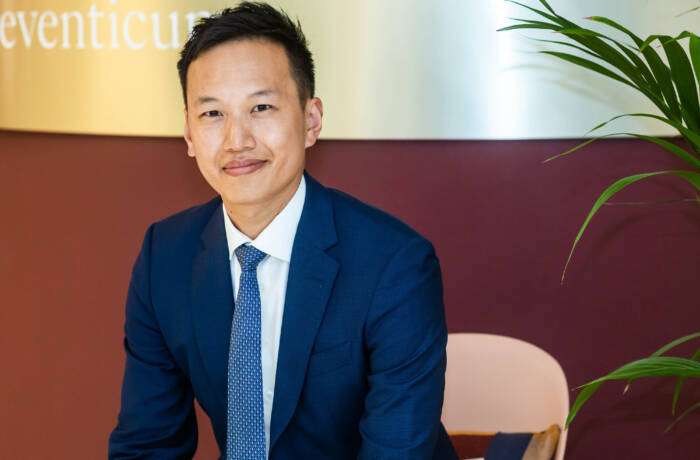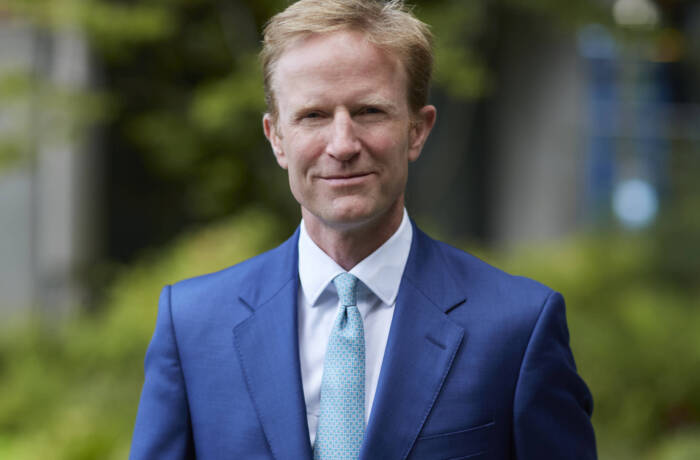
Westminster School, London
Westminster School in London is probably the best school in the world. From Beijing to Buenos Aires, the global elite crave a place at the institution, dating back to 12th century, for their children. At the school’s heart is the pursuit of knowledge and the fuelling of intellectual curiosity for its own sake. Its headmaster Patrick Derham talks to Darius Sanai about educational challenges in an internet-dominated world, and how to stay on top.
LUX: The big debate right now is about how the internet is affecting learning. Is rote learning over because the sum of human knowledge is available on your iPhone? And are all schools outdated (which some pioneers are saying in Silicon Valley)?
Patrick Derham: It’s a fascinating question that isn’t new; and whenever you talk to educationalists and people in education there are different opinions. However, we all agree that what really impacts on young people, wherever they are in the world, is the quality of the teaching. No matter what technological advances there are, I passionately believe that what happens in a classroom – the interaction between teacher and pupil – is crucial to the life chances, the success, and the educational journey that young people are embarking upon.
The internet is a fantastic resource when used properly. I’m unusual as a Head in that I teach an A-level history set. I believe in varying the material I present to the class: not just traditional text books or biographies, but also online materials and access to online articles. It is a great bonus for them to have a much greater breadth of potential resources than I had at their age. So, I think it is very exciting.
In terms of rote learning, I’m afraid education is tough and there are no shortcuts. And there is nothing wrong with a bit of old fashioned rote learning as part of that educational journey. The information may be out there, but you have to have the skills to detect its bias and to understand its reliability and validity. Rote learning provides a foundation of knowledge from which to make those judgements.
But you also need to be able to think, and to realise that learning is, by nature, difficult. When learning a language, for example, before you can speak fluently, you have to learn the grammar and vocabulary; there is no other way around it. It is a helpful discipline; but learning is not just that. The best educational offerings are inculcating in young people a radical, questioning, liberal tradition: an encouragement to entertain, to challenge and to scrutinise. The greatest teaching encourages interaction: that discussion, the challenge that gently steers the pupils without necessarily giving them the answers, encouraging them to find their own solutions and to deepen their inquiry, as Westminster has done for generations.
Read next: British model and founder of the All Women Project, Charli Howard on her battle against Size Zero
LUX: You mentioned style of teaching, which I think is a key distinction. I will call them the new educationalists: people who are saying that facts are there, you can learn remotely and you don’t have to be in one room with a person telling you things. But what you’re saying is that good teaching is not just telling people what facts are?
Patrick Derham: The best teacher isn’t the one who points out the facts and just dictates. This is because good teachers are not constrained by syllabus requirements; they are not teaching to a test. They have the confidence in their subject knowledge and relationship with their pupils to be risk takers, prepared to go off on tangents. They will, whatever their subject, draw examples from the modern world, the past and from other disciplines so that young people realise that just because they are studying Physics, for example, doesn’t mean their learning is compartmentalised: they are led to understand how it interacts with the rest of society and the rest of life. It’s the same with the humanities and the arts. The best teachers need to be risk takers to push beyond the boundaries of the syllabus, to be seeking out connections. To understand the 18th and 19th centuries, for example, you need to have a full appreciation of cultural influences. It’s not just about learning the facts of who was king and who was the prime minister.

Patrick Derham
LUX: Interesting. Recently, I found some work from when I was at Westminster. I did Chemistry, Biology and and English for A Level, and I found a science essay on molecular biology where I had brought in some of the metaphysical poets’ perspectives on love and how that related to molecular interaction. What struck me was that the teacher was fascinated and encouraged me to talk about it more. And that’s a Westminster thing!
Patrick Derham: That’s what I think the best education systems, wherever they are in the world, should be aspiring to do. I think there is something very distinctive about Westminster. It’s an extraordinary institution – very modest, we wear our traditions very lightly – but actually we are at the cutting edge of the finest teaching and developing the finest minds. I edited a book of essays, ‘Loyal Dissent’, which I think encapsulated Westminster well. The pupils are very loyal, but they are very dissenting; they are very radical and challenging. One of the most interesting parts of the book is Nick Clegg’s introduction [the former UK deputy prime minister] because he reflects on what he learnt at school.
We are, arguably, the leading academic school in the world. When I arrived, we took the international PISA-based test for schools and gratifyingly we came top in the three measurements. But, much more interesting and exciting was the fact that the study connected us with leading research across the world on pedagogy. The lessons we learn from PISA, the work we are doing with Cambridge and major educational studies, is all about getting the best out of our pupils and to prepare them for challenges ahead, many of which, as yet, are unknown. More than ever, we must give young people, wherever they are in the world, a skill set that means they have the ability and flexibility to move from job to job in the workplace as it evolves.
The new generation at work, the twentysomethings, are having to demonstrate much greater versatility. The best education is about giving them resilience, too – the ability to cope with disappointing setbacks: not just to throw their hands up and say, “This is unfair!” but rather, “What am I going to do about it?” We are living in very interesting times nationally and internationally. But the young people today are much more prepared to engage with big questions; they are much more interested and positive and much less selfish. This makes me hugely optimistic. When I look back to my early days of teaching it felt very different.
LUX: How do you find your teachers?
Patrick Derham: We look for the primacy of the subject, the love of subject, that infectious enthusiasm that really makes a difference and excites people. That’s what I want to see. So, we need to reduce the administrative load on teachers, and, in this, we can learn from each other. What’s happening in China is very interesting.
LUX: What exactly?
Patrick Derham: That they are given more time to focus on teaching rather than administration.
LUX: A school like Westminster, for many hundreds of years, catered to the British intelligentsia. Now it’s the international high flying set who have settled in London. Has that changed the school?
Patrick Derham: No, I think it’s exciting that London is such a cosmopolitan city. Westminster has a cosmopolitan,

Westminster School with view of the London Eye
international feel and this makes it very outward facing. We don’t need to talk about the importance of the global economy because it is very much here and it gives our community a real buzz. A related question for me is the issue of the affordability of fees and I worry about schools like ours becoming too exclusive. So we work extremely hard in all sorts of ways to make a Westminster education possible for those who would benefit most from it: bursary provision, for example, and we’ve appointed a director of outreach and widening access working with local primary schools to identify the right people whom we can support.
Really excitingly, we are in the third year of the Harris Westminster Sixth Form, which is our collaboration with the Harris Federation to replicate a Westminster Sixth Form education in the state system. It has been a stunning success and the admissions criteria there are for underprivileged children. We are thrilled that in the second cohort they have got 23 offers at Oxford and Cambridge, which is remarkable. This eclipses a huge number of independent schools that have not achieved that number this year.
Read next: Sophia Kah CEO and designer on sophisticated style
And again, the successful partnership with Harris, helps remove any air of public school arrogance, which I can’t stand. There is no place for it and there never was. The world owes no favour to pupils from schools like Westminster. They have got to demonstrate from their own merits, their own talents, their own skills that they are the best person – a Westminster education doesn’t give them a head start or a privilege.
LUX: You mentioned preparing people for a world where they will have multiple jobs in series or in parallel. The risk of artificial intelligence replacing many traditional careers seems to me to encourage a bias towards the creative industries where artificial intelligence is less likely to take over. Do you think that’s true? And how do you prepare people who might be studying sciences for a world where creativity (whether it’s entrepreneurial or traditional) is what might save them from being taken over by machines?
Patrick Derham: I think it goes back to the ethos of the school, and the education you’re trying to provide. If you teach science in the ways we do – predominantly experimental – it’s a much more creative approach. We want our pupils to experience scientific understanding and to gain knowledge through ‘doing’. And, you used that brilliant example of the cross fertilisation of Biology and English. In a sense that is creativity in action. Specialists need to be working alongside each other and with an open mind, in the world we are moving into. I think the best people from schools and universities are those who can demonstrate that ability to move quickly from one thing to another, making connections both within disciplines and between them. That sort of fearless intellectual curiosity comes from the best schooling








